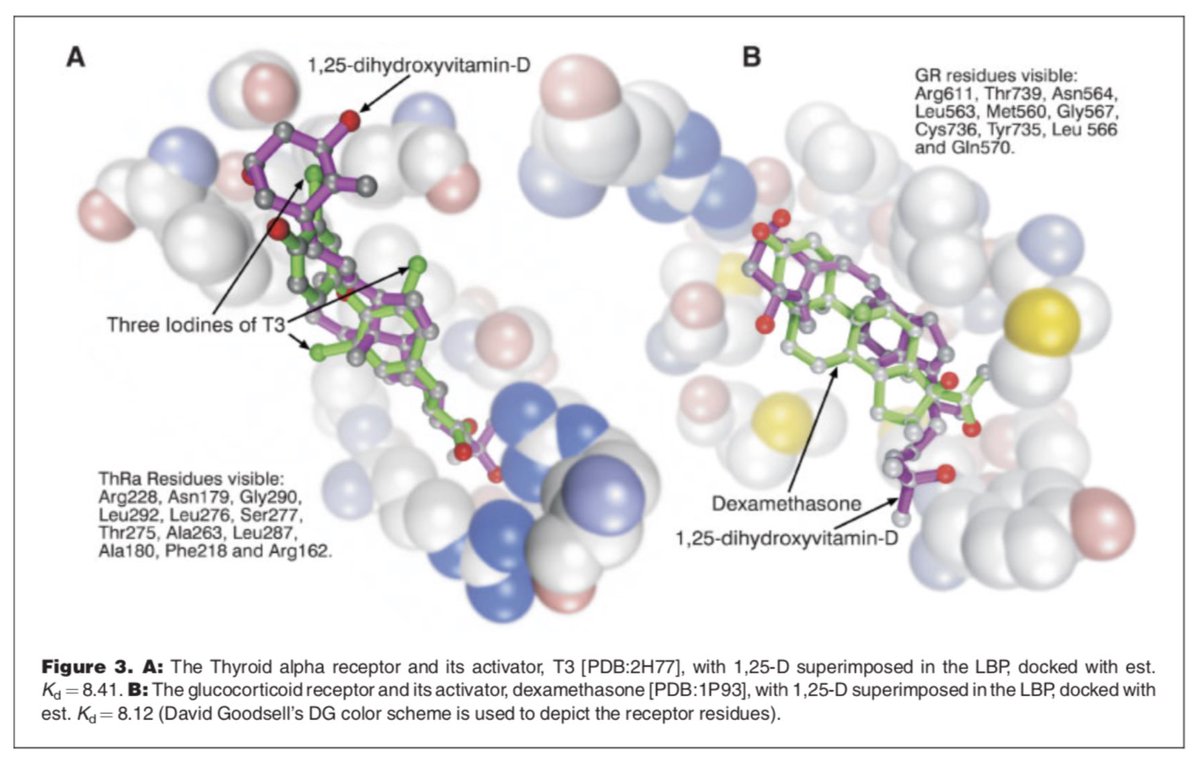Boy is it refreshing to read this thread that takes a close look at two studies being used to rationalize #vitamin D supplementation for #COVID-19. It explains how both studies have so many problems that the findings must be interpreted with great caution https://twitter.com/ayjchan/status/1311097449541496833">https://twitter.com/ayjchan/s...
2/ Why do I care? I spent part of my graduate work working on the molecular #biology of the vitamin D system (including how the various “vitamin” D metabolites impact Vitamin D Receptor activity/gene expression)
3/ Far from being simplistic “vitamins”, the various forms of “vitamin” D are actually secosteroid transcriptional activators, w/ 1-25-dihydroxyvitamin D (also called D3) also acting as a hormone
4/ We, and many other “vitamin” D research teams, spent years working with the IOM to challenge the model that a mere association b/t low 25-D levels on a blood test and X condition is a justification for high-dose supplementation
5/ That model is aggressively pushed forward by Michael Hollick’s team (who did the 2nd study in Alina’s thread). Hollick has, by the way, been featured in the NYT for his conflicts of interest tied to vitamin D research: https://www.google.com/amp/s/www.nytimes.com/2018/08/18/business/vitamin-d-michael-holick.amp.html">https://www.google.com/amp/s/www...
6/ To counter what became known to many as the “Hollick argument” the IOM invested $$$ in high-quality RCTs to test whether long-term vitamin D supplementation is actually effective in many conditions
7/ Almost no RCT showed a positive effect for vitamin D supplementation long-term. This RCT even found that in older community-dwelling women, annual oral administration of high-dose vitamin D resulted in an INCREASED risk of falls and fractures: https://pubmed.ncbi.nlm.nih.gov/20460620/ ">https://pubmed.ncbi.nlm.nih.gov/20460620/...
8/ Part of the reason for the negative RCT outcomes is that both main forms of “vitamin” D have immunosuppressive effects under certain circumstances (not always great for long-term health)
9/ In fact, our modeling data suggests that 1,25-D (D3) can bind into the glucocorticoid nuclear receptor with a similar affinity to dexamethasone: https://onlinelibrary.wiley.com/doi/abs/10.1002/bies.20708">https://onlinelibrary.wiley.com/doi/abs/1...
10/ In that sense D3 could potentially be useful to control the #COVID-19 cytokine storm, but way more work on the specifics of the molecular biology must take place!
11/ Overall, there are 2 main takeaways: 1. “ #Vitamin” D research must be based in molecular biology and not on association studies 2. Vitamin D supplementation is a complex topic that should not be centered on a “one size fits all” paradigm

 Read on Twitter
Read on Twitter


